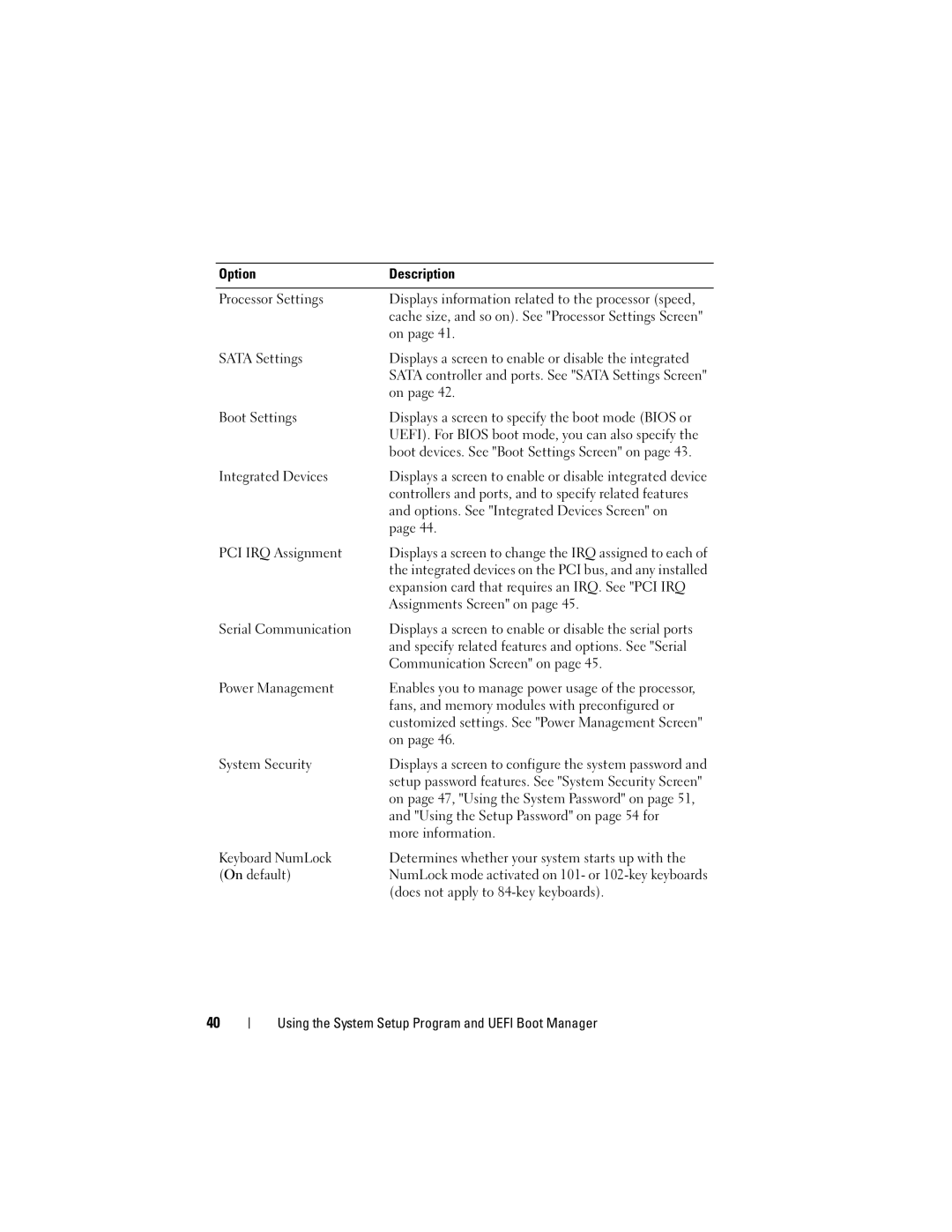
Option | Description |
|
|
Processor Settings | Displays information related to the processor (speed, |
| cache size, and so on). See "Processor Settings Screen" |
| on page 41. |
SATA Settings | Displays a screen to enable or disable the integrated |
| SATA controller and ports. See "SATA Settings Screen" |
| on page 42. |
Boot Settings | Displays a screen to specify the boot mode (BIOS or |
| UEFI). For BIOS boot mode, you can also specify the |
| boot devices. See "Boot Settings Screen" on page 43. |
Integrated Devices | Displays a screen to enable or disable integrated device |
| controllers and ports, and to specify related features |
| and options. See "Integrated Devices Screen" on |
| page 44. |
PCI IRQ Assignment | Displays a screen to change the IRQ assigned to each of |
| the integrated devices on the PCI bus, and any installed |
| expansion card that requires an IRQ. See "PCI IRQ |
| Assignments Screen" on page 45. |
Serial Communication | Displays a screen to enable or disable the serial ports |
| and specify related features and options. See "Serial |
| Communication Screen" on page 45. |
Power Management | Enables you to manage power usage of the processor, |
| fans, and memory modules with preconfigured or |
| customized settings. See "Power Management Screen" |
| on page 46. |
System Security | Displays a screen to configure the system password and |
| setup password features. See "System Security Screen" |
| on page 47, "Using the System Password" on page 51, |
| and "Using the Setup Password" on page 54 for |
| more information. |
Keyboard NumLock | Determines whether your system starts up with the |
(On default) | NumLock mode activated on 101- or |
| (does not apply to |
40
Using the System Setup Program and UEFI Boot Manager
